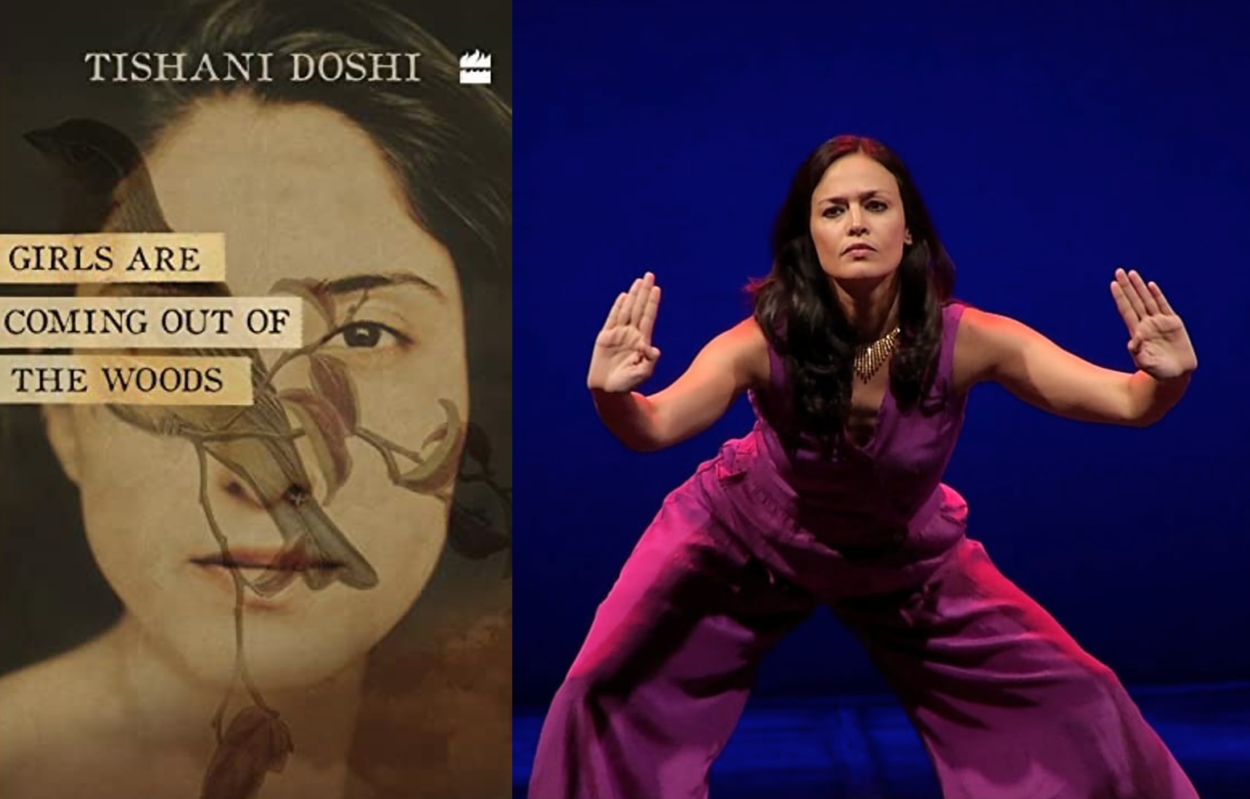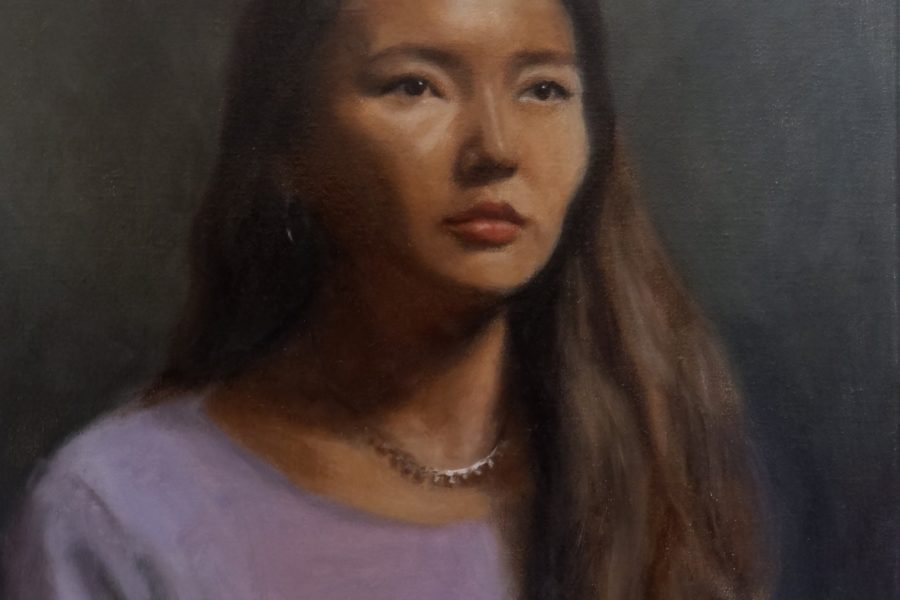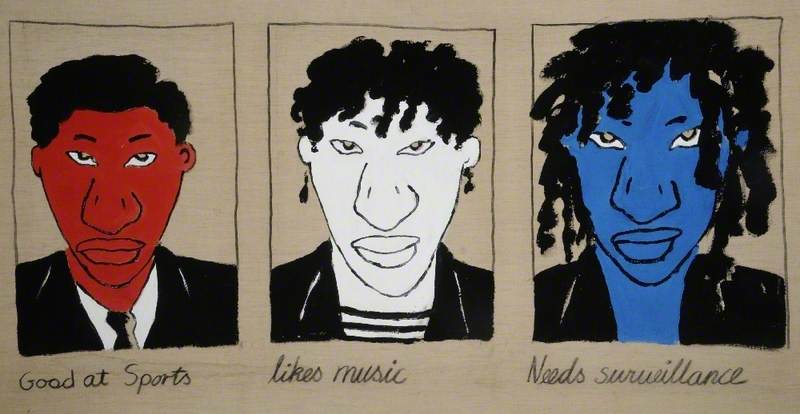In 2018, Tishani Doshi was shortlisted for the Ted Hughes Award for her electric poetry collection Girls Are Coming Out of the Woods1 and for her accompanying dance performance of the titular poem.

Commentary on Doshi’s ‘Girls are Coming Out of the Woods’: What do women mean when they talk about ‘coming’?
When I first read the poem “Girls Are Coming Out of the Woods”, it was an unflinching victory song. It was a triumph against violence, a triumph against linear constructions of time and memory. But during my master’s in Comparative Literature, when I revisited her works, the poem became symbolic. Doshi’s dance performance added to the theatrics of the poem and added to its visceral quality. It also became an intermedial exercise to understand the urgency behind the premonition in her poetic voice. The body ceased to be a textual symbol, and became mobile evidence. Her flow and movement captured the urgency behind her prophecy, breaking down the rigid and non-assimilatory aspect of categorising women in binaries.
The pelvic parting became a motif, and Doshi managed to trap temporality, history and sexuality in the undead bodies of women who were emerging to reclaim their power. Emergence became a central theme, as Doshi manifested a war cry and a warning that women had truly arrived. A chilling chant of defiance and recollection of trauma, the poem begins with a promise that girls- beaten, broken and buried, are coming out of darkness having embraced it. In the current cultural climate, which is replete with contradictory ideas and interpellations of femininity, Doshi purposefully deploys a provocative, obscuring and violent style to discuss the persistence of traditional paradigms of gender relations.
Doshi’s engagement with the violence enacted upon women’s bodies in India not only inspired me but also informed me of the crushing tides that seem at once familiar and alien. My poetry is invested in land, language and body, and so I found Doshi’s third collection very close to home.
My poem “coming” discusses my Chinese flatmate in Edinburgh who provided me with food, comfort and humour during the initial turbulent days of the pandemic. We were both living away from our homes; away from our mothers, who were the locus of our insecurities, self degradation and homesickness. I have a tricky relationship with both my mother-tongue and my mother, my mother has a difficult relationship with hers, and in my poems, I often engage with this inter-generational spite that has marked my sense of identity. Thus, my poem also addresses my grandmother who was married into a political family, but was not spared from middle-class strife. The poem discusses her role in sustaining a household where she was caged in kitchens, household chores and birth-giving. Her revolution happened behind the tandoor, and in my poem, I question what would have happened if she stepped out of the private sphere (andarmahal) and into the public – which she did, later in life. I compare her to Rosa Luxemburg, Angela Davis and iconic Bengali women who fought several odds to introduce modernity to Bengal. The poem uses the word ‘coming’ to question its meanings in different contexts – in philosophy, theory and theology. It is also a pun on the way Bengalis say goodbye. We say, আসছি which means that we will be coming back soon. Thus, the poem is also about re-emergence of women from their designated spaces and venturing into the world to meet new people, make new friends and uplift women from all around the world.
When women arrive, they exit spaces they have traditionally been relegated to, especially if she is an immigrant because then the space, she occupies becomes a threat to her existence. When Homi Bhabha talks about the terror of experiencing the “unhomely”2, he mentions that ambiguity and anxiety of not belonging. The dislocation thus does not only occur in a spatio temporal sense but also a psychological one. When Doshi’s girls come out of the woods, they are at once abandoning the marginalization thrust upon them and the idea of a previous self. In her poem, “Your Body Language is not Indian! or, Where I am Snubbed at a Cocktail Party by a Bharatnatyam Dancer” she mocks monolithic subscription to a singular, homogenous identity. The unfamiliarity of recognising oneself as a stable entity, and the terror of being split into multitudes inevitably leads women to build bridges; the past, the present and the future collide. History becomes circular and subjectivities multiply. Thus, this welding of history, memory and identity allows women to transform dislocation into a beneficial, sublimated presence which is fluid and can exist beyond the grasp of repression. Her narratives of dislocation, belongingness, disaffection and demand for justice are inspiring, and in a way reflect my desire to encapsulate cities, mobility and home. My latest project: ਬਾਰੀ/bari/বাছ়ি, is a poem in ten parts which discuss what the sound ‘bari’ means in different languages. Home in my poems is both homage and obituary to memory, past and familial discord.
Competing analyses account for post feminism and its contradictory emanations in cultural formations amidst vaunted social freedoms, but Doshi manages to weave poems which address the rage she experiences in the mundane. She blends sexual liberation with endless hope, and always aims for retribution at the face of injustice. Her bravery, despite being transient, is lushly eloquent. She is an important oracular voice which has inspired my poetic sensibilities, and has encouraged me to open up my mind to absorb the experiences that the women in my life encounter.
(1) Doshi, Tishani. Girls Are Coming Out of the Woods. Bloodaxe Books, 2018.
(2) Bhabha, Homi K. “Unhomely Lives: The Literature of Recognition.” The Location of Culture. London: Routledge, 1994. 13
coming
you play the ukulele and the air in 15B smells like sweet seaweed.
an esoteric train whistle perfuming remote indoors, your laughter and drinking habits – when i first came to edinburgh,
i came with little luggage and little expectations
but my first friend in the city, you held the door open for me,
and offered me a pack of mint cigarettes.
later, at the beach we chased away seagulls,
eating waffles and sipping earl grey
because it had rained, then drizzled; clouds came crushing the picnic day.
we watched dogs splash in the icy sea foam, dreaming about a sea facing apartment-
endless prosecco prosciutto portobello days
you taught me to put pink peppercorn in gin and a splash of coconut rum in chilled americano, your voice, wind chimes and bell bottoms and abba dance routines.
somewhere around the world,
we will go to the beach, share a cider and a smoke again,
laughing at how we spent our days at the pub around the corner, doing grocery runs, walking around the city, when we were young, fast, and holding doors open for each other.
memories can be jaywalkers-
in dickensian wedding gowns
in didai‘s old gold jewels that she lost two months into marriage,
she became a communist bride at nineteen and a mother at twenty, bitter at misfortune for a lifetime,
hiding ammunition, gunshot wounds and convicts in her kitchen,
never having read a word of marx
a regular rosa luxemburg in her আটপ ৌপেশাড়ি
a sari hiding books written by marx talking about a revolution which is coming, derrida, about a democracy which is coming,
the bible, about jesus, the second coming
biblical, post-structural, mythological, political-
a revolution, a democracy, a messiah, a suffragette, a communist,
angela davis, kusumkumari das, gayatri devi, organza, khaddar, muga silk,
poverty, bankruptcy,
reduced to nothing but flesh
on a butterknife, spread like a silver pearl drop on everyday sourdough a pound of flesh – not the shakespearean kind,
the kind only women know how to measure and manipulate
as a tool for survival mostly against will
ask a woman,
(women usually talk a lot about coming)





Leave a Comment